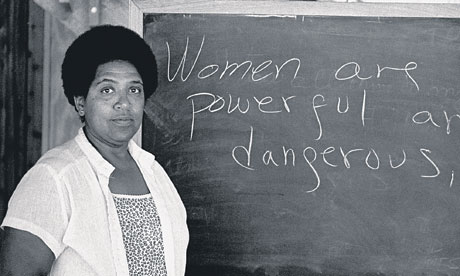I'll explain this to you, but could you please, if you need a Kindle, use
this link
to check out the spiffy new Kindle Fire? Or go in through
the Althouse Amazon portal and buy whatever you want, including
a copy of "Atlas Shrugged," if you, like me, have some use for it. Or do you already have it on your shelf? I know at least one of my readers kept 2 copies of "Atlas Shrugged" on his shelf, and perhaps he systematically handed off copies of it to people who wandered into his lair and said, "Why do you have 2 copies of 'Atlas Shrugged'?"
I hope you enjoyed the quality of my commercial effort, above, and feel inclined to show your appreciation by using those links, or just by continuing to read this. You've wandered into my lair, and maybe you're saying "Yeah, why would anyone after resisting 'Atlas Shrugged' all those years finally relent?"
And it is many years. I'm quite old! I don't need any philosophical-ideological mental nourishment to power me forth in this life. It's not breakfast time chez Althouse. When I was young, a classmate — this was high school — chided me for not reading anything that wasn't assigned by teachers. That wasn't quite true — though I did apply myself assiduously to consuming whatever the government indoctrinators put on my plate — but I was quite sensitive to insinuations that I was in any way not a good person. And I read the book this teenage boy insisted on giving me:
"Anthem." Sorry, old man who was once that boy, but it didn't change my life, it's still the only Ayn Rand book I ever read, and I don't remember anything about it, other than that it might have been science fiction.
The reason I'm downloading "Atlas Shrugged" into my Kindle this morning is the reason I buy most of the ebooks I buy: I want to be able to do searches, find the context of quotes, and cut and paste text into this blog. I happen to need "Atlas Shrugged" right now, because Ted Cruz — the filibustering Ted Cruz — was quoting from "Atlas Shrugged," and I was using a quote on the blog, in
the previous post, and I have a lot more to say about the quote, and I can't do it without the context.
Having written that long post, I found myself going into my own comments section to say something more. Quoting the first line of the passage Cruz had quoted — "There are two sides to every issue: one side is right and the other is wrong..." — I said:
That's already wrong!
2 sides to every issue?!
Ridiculous.
I was about to add:
I guess she may mean, there's what's right and however many other things people might think, all those other things are wrong. All those other things constitute one side, the wrong side.
Who thinks like that?! I don't believe that anyone who thinks like that can ever get elected to public office (unless they lie to people along the way).
I've never read "Atlas Shrugged," but I know it's a novel. If Ayn Rand is so dedicated to the truth, why did she write fiction? I assume it's so she could say drastic things with deniability. Those quoted lines are said by some fictional character, right?
And that's when I needed the text. I do a search on the word "poison," the most distinctive word in the passage that springs to mind. (From: "In any compromise between food and poison, it is only death that can win.") Actually, there are other distinctive words, more likely than "poison" to pinpoint the text I want. "Knave" and "transfusion" would have been better bets. "Poison" appears 9 times in "Atlas Shrugged." (Boldface added.)
Without us, they are corpses and their sole product is poison, not wealth or food, the poison of disintegration that turns men into hordes of scavengers. p. 620.
Okaaay.
Somewhere, he thought, there was this boy’s mother.... Had she fed him tainted refuse, he thought, had she mixed poison into his food, it would have been more kind and less fatal. p. 994.
We're closing in on page 1000, and still, I've not reached the "poison" I'm seeking.
"Then I saw what was wrong with the world.... Just as the parasites around me were proclaiming their helpless dependence on my mind and were expecting me voluntarily to accept a slavery they had no power to enforce.... so throughout the world and throughout men’s history, in every version and form, from the extortions of loafing relatives to the atrocities of collective countries, it is the good, the able, the men of reason, who act as their own destroyers, who transfuse to evil the blood of their virtue and let evil transmit to them the poison of destruction, thus gaining for evil the power of survival, and for their own values— the impotence of death. I saw that there comes a point, in the defeat of any man of virtue, when his own consent is needed for evil to win— and that no manner of injury done to him by others can succeed if he chooses to withhold his consent. I saw that I could put an end to your outrages by pronouncing a single word in my mind. I pronounced it. The word was ‘No.’" p. 1048
No, that not it. But we seem to be getting warm, because the
transfusions are there now too. It's the image of the tube that has good lifeblood coming from the able people who are getting poison back. And here's the quote I'm looking for, on page 1054, and we're deep into a long peroration, too long and too late in the story to put me in a position to call Rand out for taking cover within fiction.
“The man who refuses to judge, who neither agrees nor disagrees, who declares that there are no absolutes and believes that he escapes responsibility, is the man responsible for all the blood that is now spilled in the world....
“There are two sides to every issue: one side is right and the other is wrong, but the middle is always evil. The man who is wrong still retains some respect for truth, if only by accepting the responsibility of choice. But the man in the middle is the knave who blanks out the truth in order to pretend that no choice or values exist, who is willing to sit out the course of any battle, willing to cash in on the blood of the innocent or to crawl on his belly to the guilty, who dispenses justice by condemning both the robber and the robbed to jail, who solves conflicts by ordering the thinker and the fool to meet each other halfway. In any compromise between food and poison, it is only death that can win. In any compromise between good and evil, it is only evil that can profit. In that transfusion of blood which drains the good to feed the evil, the compromiser is the transmitting rubber tube.
“You, who are half-rational, half-coward, have been playing a con game with reality, but the victim you have conned is yourself. When men reduce their virtues to the approximate, then evil acquires the force of an absolute, when loyalty to an unyielding purpose is dropped by the virtuous, it’s picked up by scoundrels— and you get the indecent spectacle of a cringing, bargaining, traitorous good and a self-righteously uncompromising evil."
Is this cranking you up? It doesn't work on me. I think
moderation is a virtue, but in this imagery, virtue is blood, evil is poison, and moderation is a
tube. You're supposed to feel this as a flashy display of reason, but it's full of emotional bluster and heavily reliant on metaphor. I'm being asked to regard myself as a rubber tube. No.
I'm blogging, so I can just say: No, I am not a rubber tube. But if I were a writer of 1000-page novels, I would see that I could pronounce a single word in my mind. I would pronounce it. The word would be "No."
I'm not accepting this picture of life in terms of people with good blood and people with bad blood and everyone else as a bunch of tubes conducting a big old transfusion that's just got to stop, so this ongoing peroration — a filibuster of sorts — feels nightmarish. It contains
enough reason and coherence to pull listeners along, to make them feel smart and energized. That's the most dangerous sort of irrationality. Completely irrational speakers repel all listeners. But this sort of material draws people in. The way to draw an audience is with a transfusion of irrationality and rationality — to be the rubber tube.

